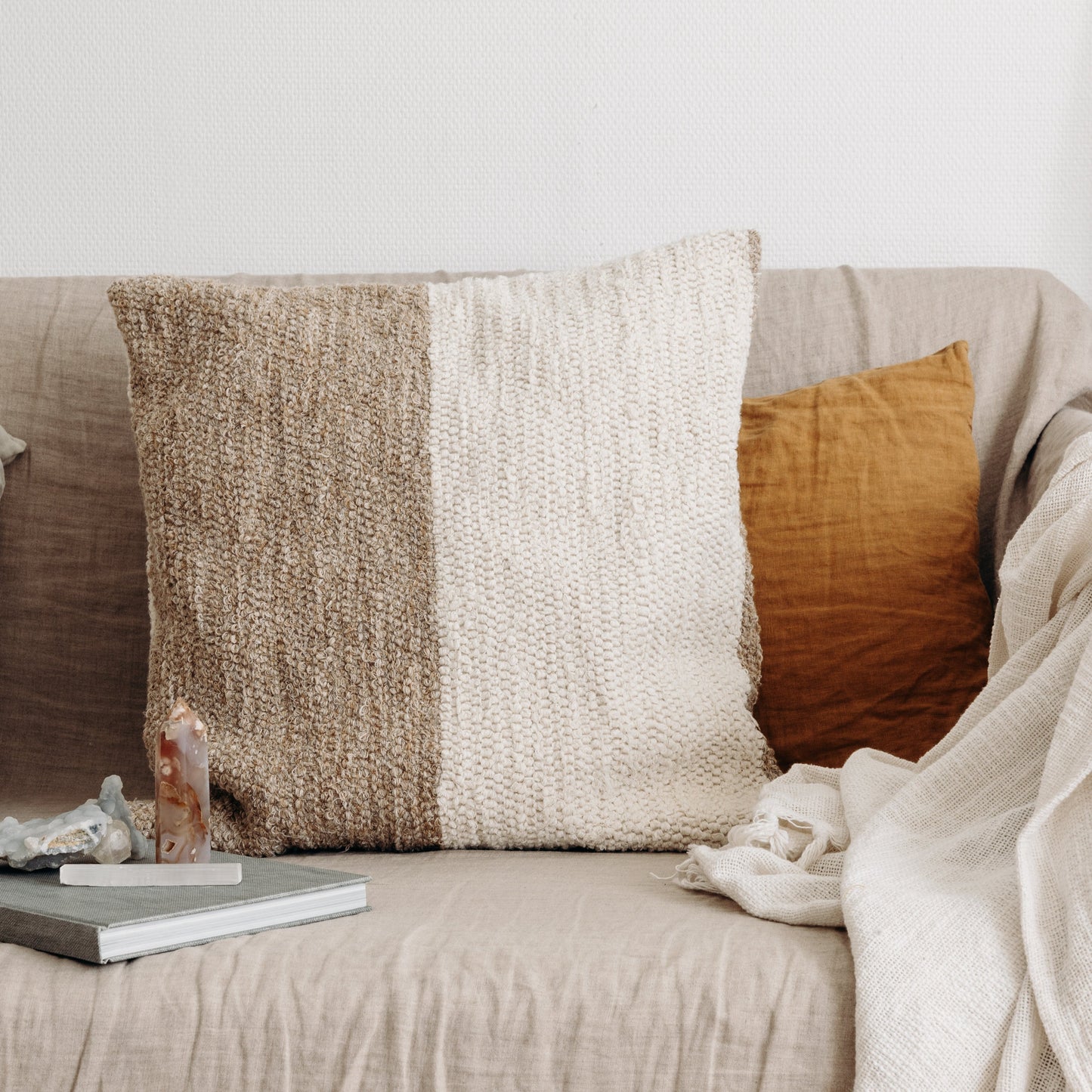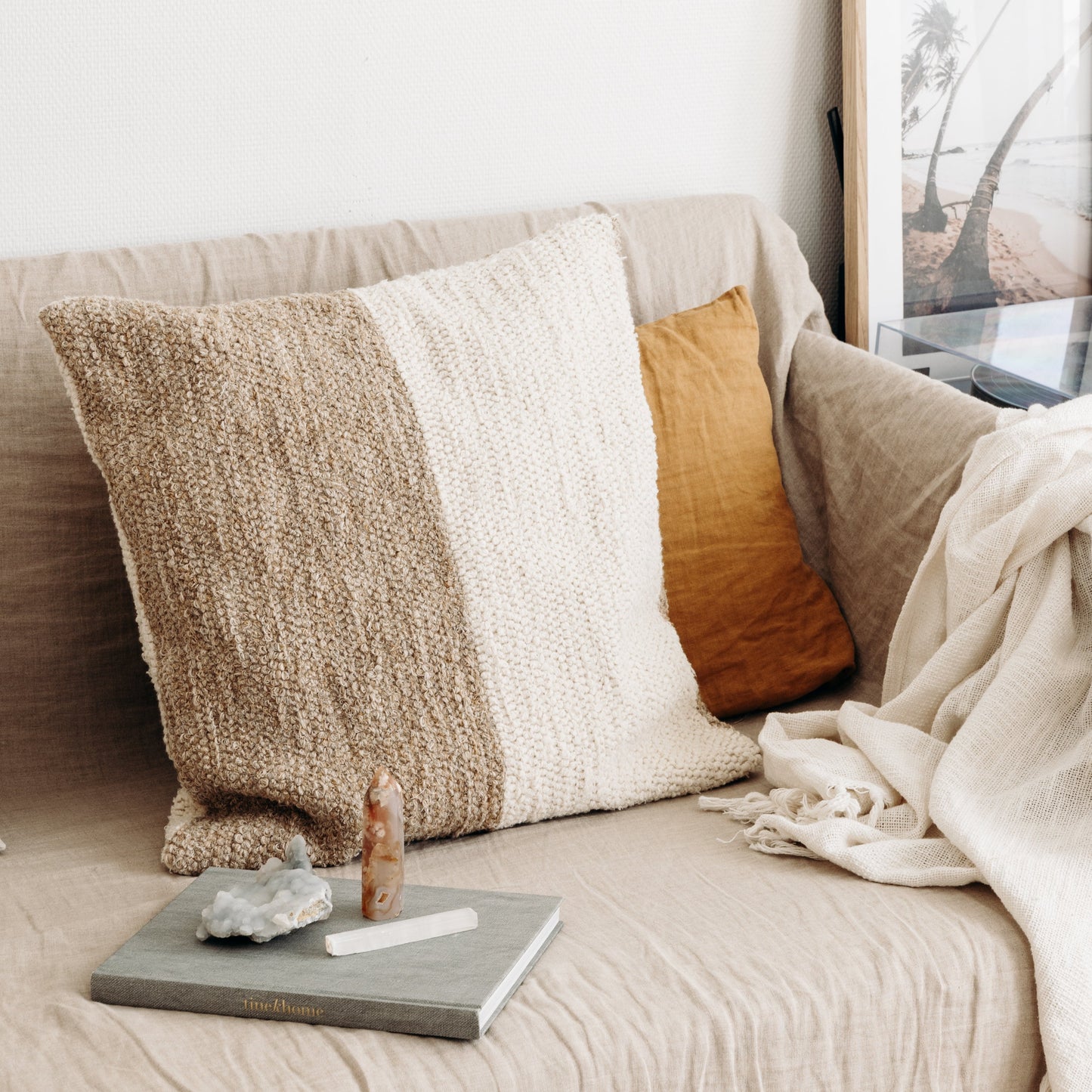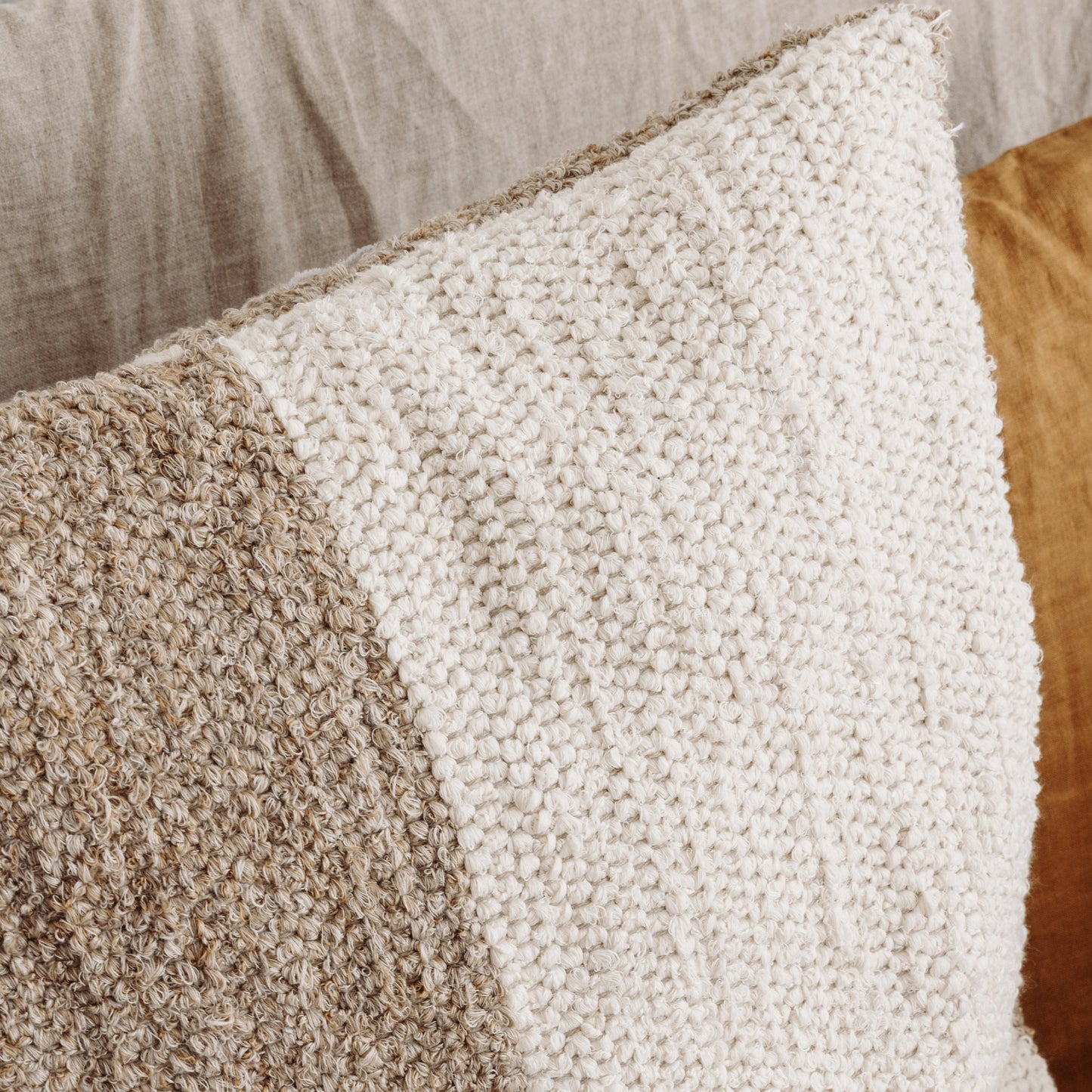Cushion cover in textile scraps - Gaspard off-white & beige
Cushion cover in textile scraps - Gaspard off-white & beige
Low stock: 1 left
This cushion cover made with cotton waste from local textile workshops is unique and elegant. We love its imperfect yet extremely comfortable texture - perfect for a bedroom or living room.
Couldn't load pickup availability
shipping
shipping
Shipping is never free and at elbarud, we don't like dubious promotions, so we simply always share shipping costs equally ! A small step for you, a small step for us, but a big step towards a more sustainable consumption!
technical characteristics
technical characteristics
dimensions: 57 x 57 cm
composition: 100% cotton scraps
care
care
Can be cleaned in washing machine at 30°C
share




why is this product sustainable?
-
composition
100% cotton scraps from portuguese textile workshops.
All threads used are also recovered from local textile workshops. -
production location
This cushion case is made in Portugal.
-
manufacturing
Nunamae products are made in small quantities on wooden weaving looms (sometimes 100 year old!) that don't need water or electricity. All steps are made by hand by local artisans with ancestral techniques.
-
economical & social impact
Partnership with local artisans and family owned workshops allows to preserve knowhow and favours a circular and fair economy for all.
-
packing & transport
For now, Nunamae hasn't taken any specific action on this, an area for improvement!
-
end of life
Like other natural textile fibers, cotton is easily recycled when it's not mixed with other materials.

Who hides behind this product?
Mariana Figueiredo came up with the idea to create Nunamae during lockdown - she had wanted to birth a sustainable project that would have a positive impact on the environment and society for a while.
Nunamae is committed to highlight Portuguese production of articles made by hand with minimal ressources and with a weak or inexistent impact on the environment.
The brand defends not only the planet with eco-friendly and sustainable products, but also ethical values of a circular and fair economy for all. All objects are made from cotton scraps recovered in textile factories in Portugal and give a second life to what would otherwise be wasted.




